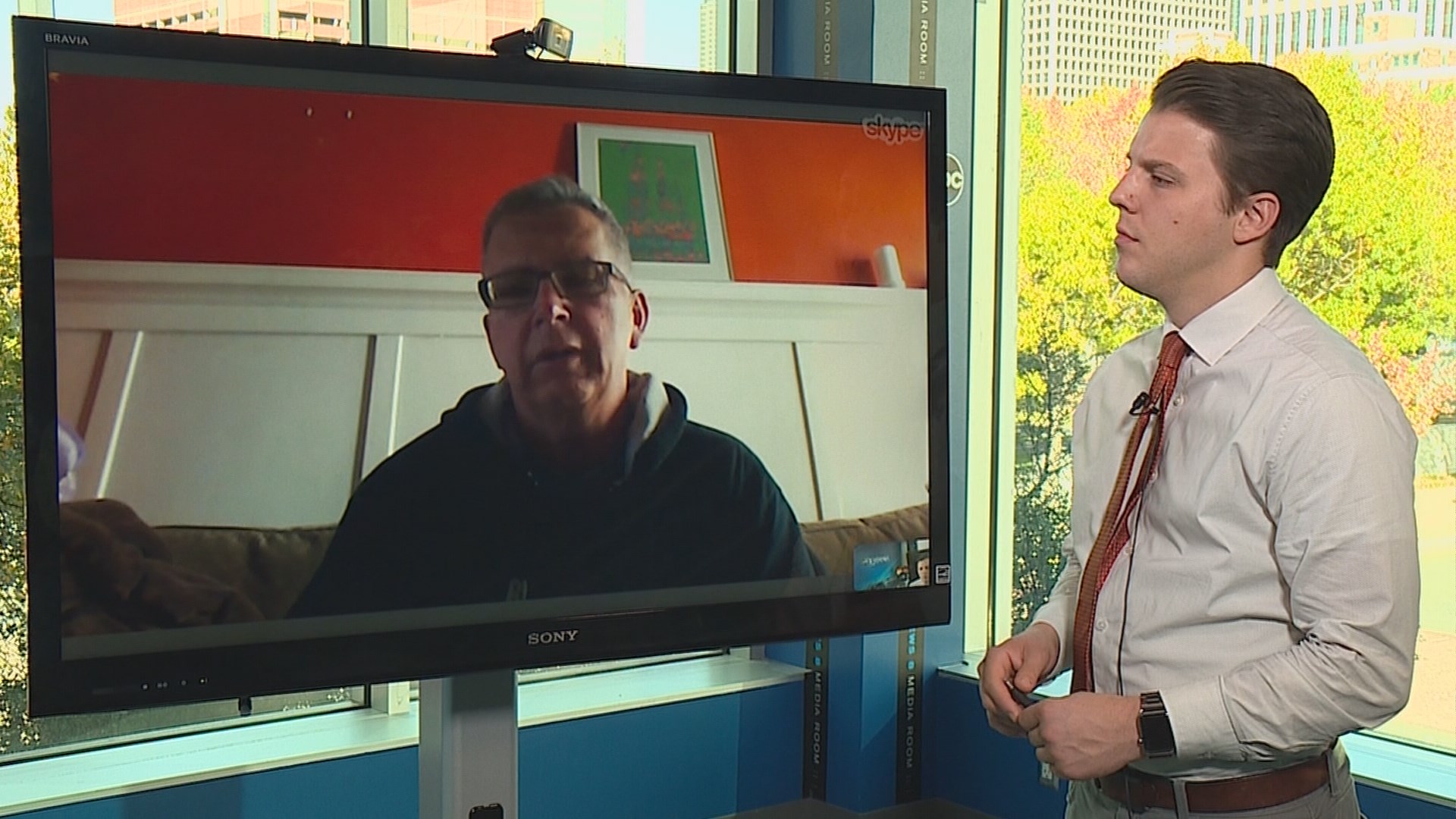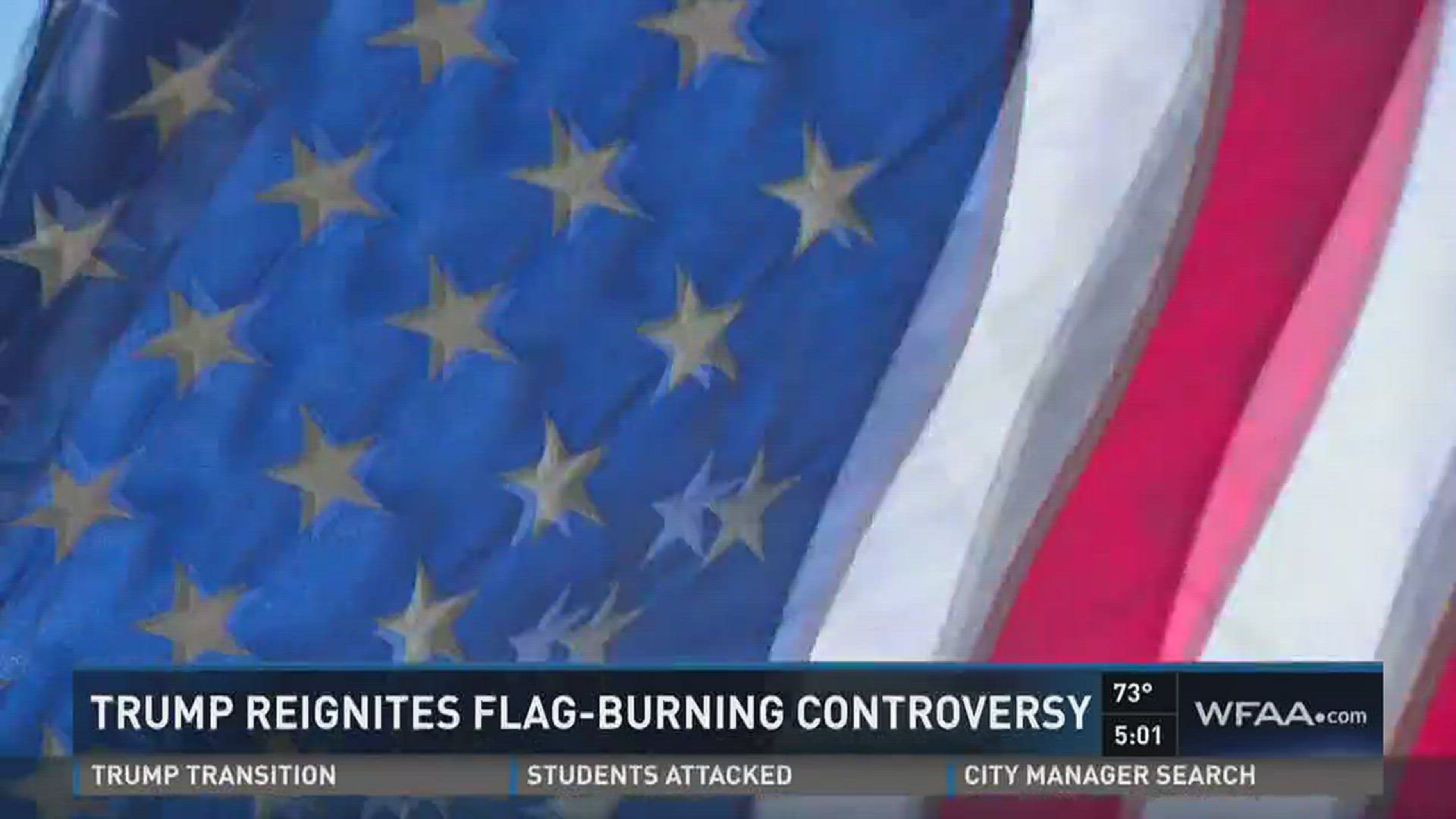In an early morning tweet Tuesday, President-elect Donald Trump took aim at flag burning, calling for consequences on those who choose to deface the stars and stripes.
"Perhaps loss of citizenship or year in jail," his tweet reads.
Nobody should be allowed to burn the American flag - if they do, there must be consequences - perhaps loss of citizenship or year in jail!
— Donald J. Trump (@realDonaldTrump) November 29, 2016
Lee Johnson is the reason why burning a flag isn't a crime in the United States. He spoke to News 8 via Skype from San Francisco.
"It's taking a national symbol and attaching one permissible meaning to it,” Johnson said.

In 1984, the political activist was in Dallas for the Republican National Convention -- during a protest march, he lit an American flag on fire in front of City Hall.
He was arrested and sentenced to a year in prison. It took several years, but in 1989, his case made it to the United States Supreme Court.
The nation's highest court ruled that Texas' law banning flag burning was in fact unconstitutional.
The act of burning a flag was considered free speech.
Brad Kizzia is a constitutional law expert practicing in Dallas.
"[The first amendment] protects a person's right to burn the flag, even though we don't like it,” Kizzia said. “But it also protects everyone else's right to criticize that.”
Flag burning may be a protected form of speech -- but that doesn't necessarily protect protesters from arrest.
In a video shot outside the Republican National Convention in Cincinnati in 2016 and later posted to YouTube, 16 protesters, including Johnson, can be seen being arrested after burning a flag.
They were charged with inciting a crowd that ultimately turned aggressive.

